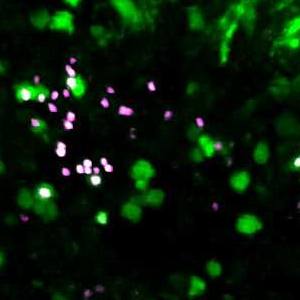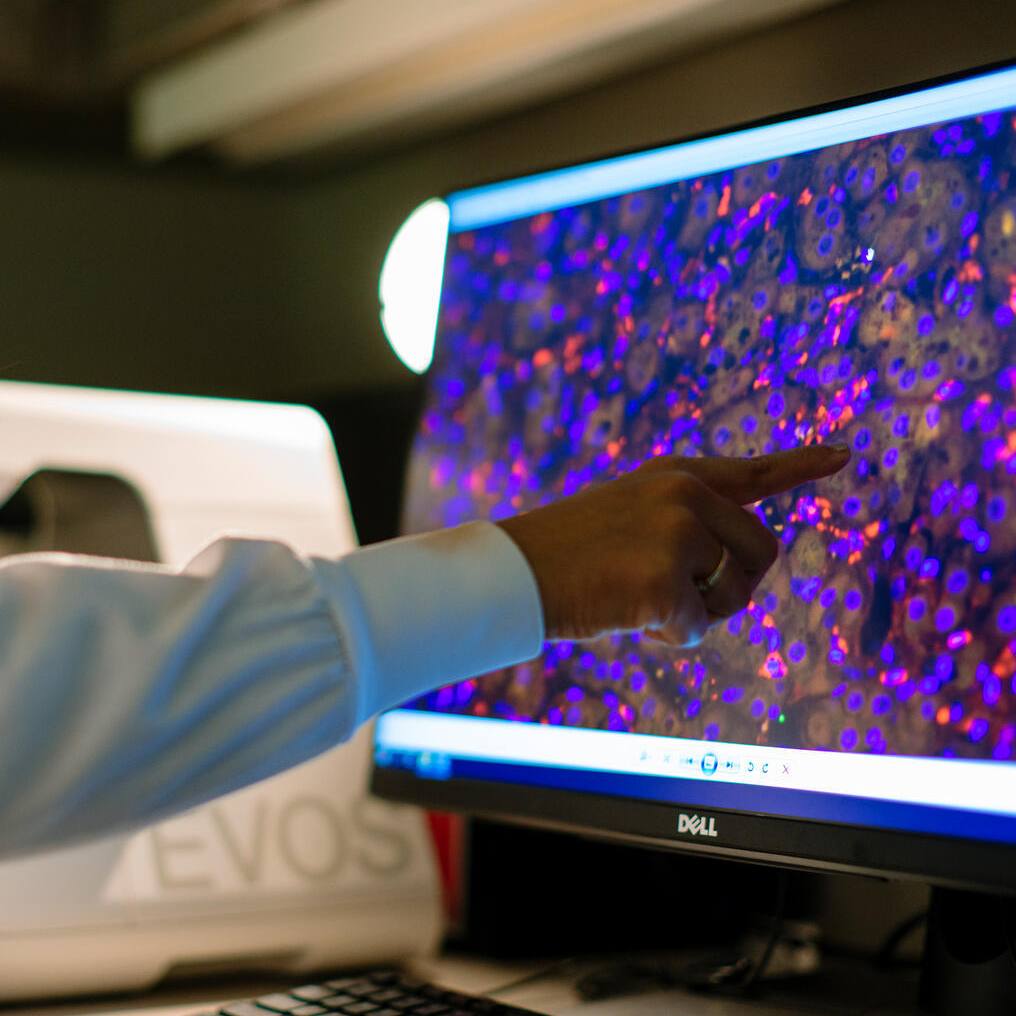
ROCHESTER, Minn. – A group of international cancer researchers led by investigators from Mayo Clinic and University of New South Wales Sydney has found that the level of a type of white blood cell, called tumor-infiltrating lymphocytes, present in the tumors of patients with high-grade ovarian cancer may predict a patient’s survival. Results of the study by the Ovarian Tumor Tissue Analysis Consortium were published today in JAMA Oncology.
“We know that a type of tumor-infiltrating lymphocyte called cytotoxic CD8 are present in the tumors of patients with high-grade ovarian cancer,” says Matthew Block, M.D., Ph.D., a Mayo Clinic oncologist who co-led the research team with Ellen Goode, Ph.D., of the Mayo Clinic Cancer Center Genetic Epidemiology and Risk Assessment Program. “However, little was known about the role in fighting high-grade ovarian cancer, compared to other clinical factors.”
To help answer this question, researchers studied more than 5,500 patients from nine different countries, including 3,196 with high-grade ovarian cancer. Researchers found that patients with high-grade ovarian cancer showed the most infiltration with tumor-infiltrating lymphocytes, which were associated with longer overall survival.
“This study shows the higher the level of cytotoxic CD8 tumor-infiltrating lymphocytes in a tumor, the better the survival for patients with high-grade ovarian cancer,” says Dr. Block. “Developing a better understanding of factors that increase cytotoxic CD8 tumor-infiltrating lymphocytes will be the key to developing treatments to achieve better outcomes in treating patients with high-grade ovarian cancer.
“This is by far the largest study of this type and would not have been possible without scientists from North and South America, Europe and Australia all working together,” says Susan Ramus, Ph.D., University of New South Wales Sydney.
###
About Mayo Clinic Cancer Center
As a leading institution funded by the National Cancer Institute, Mayo Clinic Cancer Center conducts basic, clinical and population science research, translating discoveries into improved methods for prevention, diagnosis, prognosis and therapy. For information on cancer clinical trials, call the Clinical Trial Referral Office at 1-855-776-0015 (toll-free).
About Mayo Clinic
Mayo Clinic is a nonprofit organization committed to clinical practice, education and research, providing expert, comprehensive care to everyone who needs healing. For more information, visit mayoclinic.org/about-mayo-clinic or newsnetwork.mayoclinic.org.
MEDIA CONTACT
Joe Dangor, Mayo Clinic Public Affairs, 507-284-5005, newsbureau@mayo.edu







